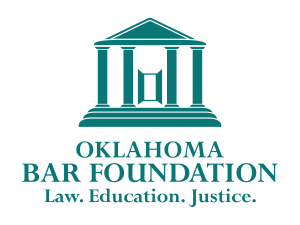Oklahoma Bar Journal
OBF Grant Seeks to Impact Court Reporter Shortage
By Renée DeMoss
Courtrooms across Oklahoma have a problem – a shortage of qualified court reporters. Particularly in Oklahoma rural courts, the shortage “has been at a crisis level for several years,” according to Oklahoma Supreme Court Justice Noma Gurich. Those in the legal field know that just like judges and attorneys, court reporters are an essential part of legal proceedings. Reporters capture and preserve every word spoken during court hearings, depositions and other legal proceedings. They produce the official transcript that a case starts and ends with and are the “guardians of the record.”
Several factors have worked together to cause the shortage in Oklahoma. The majority of existing reporters are nearing retirement age, and there are not enough new reporters getting into the field. Only a limited number of court reporting courses have been available in Oklahoma, and enrollment numbers have been low. Once students do enroll, they soon learn that acquiring the necessary skills to become a qualified, certified reporter is difficult, and the dropout rate is high. Those students who successfully complete school and gain good skills are often lured by higher salaries to neighboring states like Texas and Kansas.
Those in the legal field know that just like judges and attorneys, court reporters are an essential part of legal proceedings.
Groups across the state are working hard to change this situation. Tulsa Community College recently launched a court reporting program to help fill the curriculum void, and Oklahoma State University – Oklahoma City has started a new program with several enrollment opportunities every year. With the already existing Oklahoma College of Court Reporting, prospective reporters now have three different schools from which to choose.
The Oklahoma Bar Foundation also hopes to make a big dent in the current shortage. With a generous cy pres grant from the settlement of a class-action case in Beaver County, the OBF has created the Court Reporter Rural Service Grant Program that is intended to address the shortage by making it easier for court reporting students to gain an education and find employment and for current reporters to earn more by working in rural Oklahoma courts.  With an initial fund of $500,000, two new grants were created. The first, the Employment Grant, can be awarded to qualified individuals who, pursuant to written agreements, commit to working as court reporters in rural courts. The second, the Educational Block Grant, can be awarded to qualified Oklahoma educational institutions that teach court reporting classes to be used for scholarship funds, purchasing court reporting equipment for teaching or other related purposes. The first Educational Block Grants were awarded to each of the three Oklahoma schools offering court reporting courses in late 2020 in the total amount of $135,000.
With an initial fund of $500,000, two new grants were created. The first, the Employment Grant, can be awarded to qualified individuals who, pursuant to written agreements, commit to working as court reporters in rural courts. The second, the Educational Block Grant, can be awarded to qualified Oklahoma educational institutions that teach court reporting classes to be used for scholarship funds, purchasing court reporting equipment for teaching or other related purposes. The first Educational Block Grants were awarded to each of the three Oklahoma schools offering court reporting courses in late 2020 in the total amount of $135,000.
For more information about this grant program, contact reneed@okbarfoundation.org.
Ms. DeMoss is the OBF executive director.
Originally published in the Oklahoma Bar Journal – OBJ 92 Vol 8 (October 2021)
